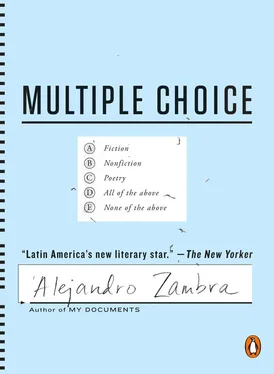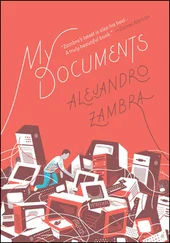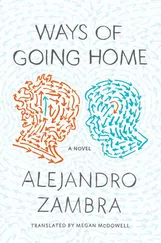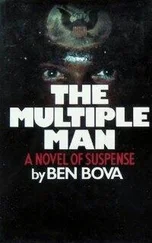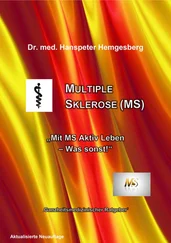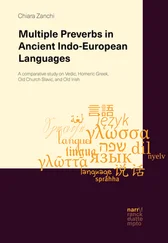(2) Classified according to their ages: The oldest is forty-five years old and the youngest twenty-nine. According to their mothers: Eleonora (two boys and the two girls), Silvana (one), Daniela (the youngest).
(3) I suggested names for all my children, but I only managed to get my way in two of the six cases.
(4) Children of mine with moles on their faces: three. With a cleft chin: two. Long eyelashes: two.
(5) Four of my children came to see me in the hospital when they removed my left kidney. The other two didn’t, but they called.
(6) Percentage of my children who have at some point said to me I hate you : 33.3.
(7) Percentage of my children who declared their hate for me not with words but with action (a punch in the left eye): 16.6.
(8) Children of mine who have asked my forgiveness: four.
(9) Two of my sons learned to clip their fingernails and tie their shoes before they were three years old. I taught all of them to drive before they were eighteen.
(10) Children of mine who have run over dogs: two. Children of mine who have run over people: one.
(11) Children of mine who work in the public sector: two. Private: two. Neither public nor private: two.
(12) Chilean presidential elections in the year 2013, my children’s votes in the first round, with 100 percent reporting:
Michelle Bachelet: two
Marcel Claude: zero
Marco Enríquez-Ominami: zero
Tomás Jocelyn-Holt: zero
Ricardo Israel: one
Evelyn Matthei: one
Roxana Miranda: one
Franco Parisi: zero
Alfredo Sfeir: one
null votes: zero
blank votes: zero
(13) My children’s votes in the second round: three for Bachelet, one for Matthei, one drew a dick on the ballot, and one daughter didn’t vote.
(14) Children of mine who have spent more than two consecutive nights in jail: zero.
(15) Children of mine dependent on drugs: five. Fluoxetine: two. Clonazepam: two. Lithium: one. Children of mine with flat feet: 100 percent. Children of mine with flat feet who refused to use insoles: two. Children of mine operated on for appendicitis: three.
(16) Five of my children are myopic and four of those also suffer from astigmatism.
(17) Of my five children with vision problems, two wanted surgery but couldn’t afford it. Three use glasses, two prefer contacts. Of the three who wear glasses, two have thick rectangular frames. With the other one, it’s no use: He has round frames, even though he knows people with round faces should wear square or rectangular frames.
(18) In general, when I have them all over for lunch, two of my children talk about politics and two about soccer. The oldest tends to relate his interminable amorous entanglements, and the other remains in absolute silence, just like when he was a boy, always looking at his plate as if he were rigorously analyzing the food.
(19) Children of mine who sometimes ask me for loans to buy medicine: two. To go to the track: one. To pay debts: two.
(20) Children of mine for whom I’d give my life: at least three.
(21) Children of mine who were planned: four.
(22) Children of mine who, in times of distress, tell me their problems: three. Children of mine to whom, in times of distress, I tell my problems: two.
(23) Children of mine who will be present at my funeral: six.
(24) Children of mine who will spit on my grave: one.
(25) Children of mine who have children: zero.
A) None
B) Any
C) All
D) 21
E) 25
Next you will read three texts, each of them followed by questions or problems based on their content. Each question has five possible answers. Mark the one that you think is most appropriate.
After so many study guides, so many practice and proficiency and achievement tests, it would have been impossible for us not to learn something, but we forgot everything almost right away and, I’m afraid, for good. The thing that we did learn, and to perfection — the thing we would remember for the rest of our lives — was how to cheat on tests. Here I could easily ad-lib an homage to the cheat sheet, all the test material reproduced in tiny but legible script on a minuscule bus ticket. But all that superb workmanship would have been worthless if we hadn’t also had the necessary skill and audacity when the crucial moment came: the instant the teacher lowered his guard and the ten or twenty golden seconds began.
At our school in particular, which in theory was the strictest in Chile, it turned out that cheating was fairly easy, since many of the tests were multiple choice. We still had years to go before we’d take the Academic Aptitude Test and apply to university, but our teachers wanted to familiarize us right away with multiple-choice exercises, and although they designed up to four different versions of every test, we always found a way to pass information around. We didn’t have to write anything or form opinions or develop any ideas of our own; all we had to do was play the game and guess the trick. Of course we studied, sometimes a lot, but it was never enough. I guess the idea was to lower our morale. Even if we did nothing but study, we knew there would always be two or three impossible questions. We didn’t complain. We got the message: Cheating was just part of the deal.
I think that, thanks to our cheating, we were able to let go of some of our individualism and become a community. It’s sad to put it this way, but cheating gave us a sense of solidarity. Every once in a while we suffered from guilt, from the feeling that we were frauds — especially when we looked ahead to the future — but in the end our indolence and defiance prevailed.
__________
We didn’t have to take religion — the grade didn’t affect our averages — but getting out of it was a long bureaucratic process, and Mr. Segovia’s classes were really fun. He’d go on and on in an endless soliloquy about any subject but religion; his favorite, in fact, was sex, and which teachers at our school he wanted to have it with. Every class we’d do a quick round of confessions: Each of us had to disclose a sin, and after listening to all forty-five — which ranged from I kept the change to I want to grab my neighbor’s tits to I jacked off during recess, always a classic — the teacher would tell us that none of our sins were unforgivable.
I think it was Cordero who confessed one day that he had copied someone’s answers in math, and since Segovia didn’t react we all contributed variations of the same: I copied on the Spanish test, on the science test, on the PE test [laughter], and so on. Segovia, suppressing a smile, said that he forgave us, but that we had to make sure we didn’t get caught, because that would really be unforgivable. Suddenly, though, he became serious. “If you are so dishonest at twelve,” he said, “at forty you’re going to be worse than the Covarrubias twins.” We asked him who the Covarrubias twins were, and he looked as if he were going to tell us, but then he thought better of it. We kept at him, but he didn’t want to explain. Later, we asked other teachers and even the guidance counselor, but no one wanted to tell us the story. The reasons were diffuse: It was a secret, a delicate subject, possibly something that would damage the school’s impeccable reputation. We soon forgot the matter, in any case.
Five years later, it was 1993 and we were seniors. One day, when Cordero, Parraguez, little Carlos, and I were playing hooky, we ran into Mr. Segovia coming out of the Tarapacá pool hall. He wasn’t a teacher anymore; he was a Metro conductor now, and it was his day off. He treated us to Coca-Colas, and ordered a shot of pisco for himself, though it was early to start drinking. It was then that he finally told us the story of the Covarrubias twins.
Читать дальше
